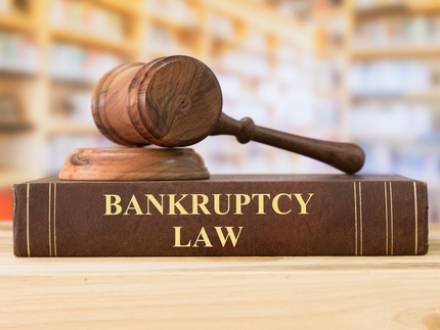How Are Personal Loans Discharged Through Bankruptcy in Texas?
 Personal loans, also referred to as unsecured loans, are those that are not tied to security or collateral. They are usually paid in a lump sum to the borrower, who pays back the debt in installments. A personal loan can be a lifesaver in times of financial difficulty, but it is also debt that can become a financial burden.
Personal loans, also referred to as unsecured loans, are those that are not tied to security or collateral. They are usually paid in a lump sum to the borrower, who pays back the debt in installments. A personal loan can be a lifesaver in times of financial difficulty, but it is also debt that can become a financial burden.
If you are overwhelmed with debt and considering bankruptcy, it is important to understand how filing for bankruptcy can discharge personal loans. For more details and for help with your bankruptcy filing, consult a qualified Texas bankruptcy attorney.
How Does Chapter 7 Bankruptcy Discharge Personal Loans?
In Chapter 7 bankruptcy, the borrower’s assets are liquidated — meaning they are sold off — to pay back creditors. Here is how the process works:
-
Automatic stay: As soon as the borrower files for bankruptcy, a law called the automatic stay kicks in. This law temporarily freezes collection efforts so that most creditors can no longer contact the borrower or take legal action for debt repayment. It also prevents utility companies from shutting off the debtor’s services if he or she owes payment.
-
Asset assessment and liquidation: The filer’s assets are assessed for value and liquidation. Texas has generous asset protection laws that allow a bankruptcy filer to keep certain possessions up to certain amounts. A single filer, for example, can keep personal property up to $100,000 in value and a family can keep up to $200,000. The remainder of the filer’s possessions are liquidated. The court appoints a trustee to oversee this process and ensure the proceeds are distributed to the creditors.
-
Personal loan discharge: Once the liquidation process is complete, the filer’s debts, including personal loans, can be discharged. He or she no longer owes those debts and creditors can no longer try to collect them.
How Does Chapter 13 Bankruptcy Discharge Personal Loans?
Unlike Chapter 7, Chapter 13 bankruptcy does not involve liquidation. Instead, the borrower works out a repayment plan with creditors to pay the debts over a period of three to five years. However, it is similar to Chapter 7 in that the automatic stay also takes effect immediately upon filing for Chapter 13 bankruptcy.
In Chapter 13, the court approves a repayment plan based on the filer’s economic situation, expenses, and the amount owed. In some cases, the amount of debt may be reduced. The filer makes monthly payments, which the court’s trustee distributes to the creditors. After all the monthly payments are made, the borrower’s personal loans and other debts are discharged.
Contact a Parker County, TX Bankruptcy Attorney
Bankruptcy can be a great way to discharge your personal loan debt when you file with the help of a Dallas, TX bankruptcy lawyer. At Acker Warren P.C., our knowledgeable attorneys are hands-on and work efficiently to help you discharge your debts. Get a free consultation by calling 817-752-9033 today.









